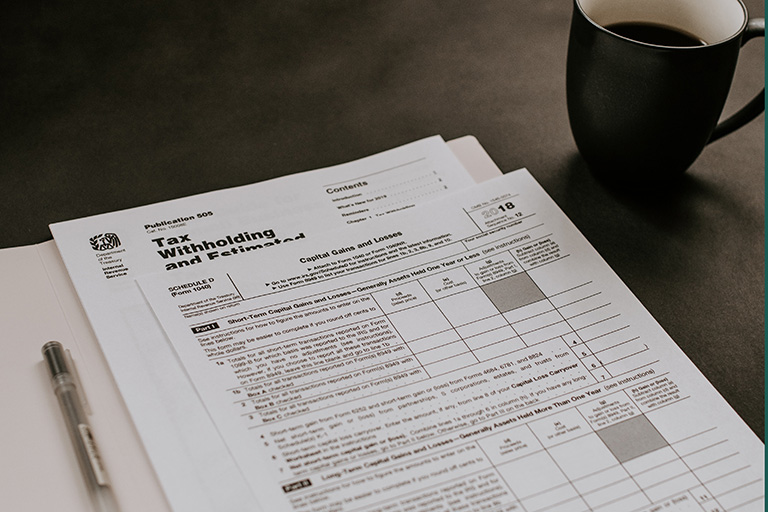If you are having problems finding the cash to pay your VAT bill – you aren’t alone. This is a problem experienced by many businesses.
Not being able to make your VAT payment to HMRC is often a sign of bigger financial troubles for your company and in extreme circumstances, it may even be a sign that your company is heading towards insolvency, which means your business has more debts than assets and it may even be time to consider liquidation.
If you find yourself unable to make your HMRC VAT payment, instead of burying your head in the sand and hoping everything goes away, you need to ensure that you’re being proactive and that you’re trying to resolve your business’ financial issues before they escalate further.
If you and your business are in the position of not being able to make your HMRC VAT payment, you’ll find our expert advice below on what to do if you can’t pay your bill and what happens if you can’t pay your bill on time.
What are the most common VAT payment problems?
There are several reasons why a company might run into VAT payment problems and oftentimes, the issue can be resolved without too much stress or anguish.
One of the most common reasons why businesses run into VAT payment problems is simply because they didn’t register for VAT in the first place, which of course, means they’ll have difficulty paying the bill if they’re not registered.
Failure to register for VAT is often an oversight that companies make as they underestimate the likelihood of success of the business within its first few years of operation, so if the business performed much better than they expected, it’s likely that they won’t have a system in place to pay VAT as they never even expected to reach that stage quite yet.
On the other hand, forgetting to deregister for VAT is another common mistake that companies make which can result in them having a huge tax burden, even if their revenue is looking poor.
As a company, even if you’ve registered for VAT and are aware that you’re going to have to pay your VAT bill, it can sometimes be quite a shock when you actually see how much VAT you have to pay and an unexpectedly large bill can cause huge cash flow issues for a company if they’re not prepared.
What happens if you can’t pay your VAT bill
If you find yourself unable to pay your VAT bill and you’re in arrears, you must take the appropriate and necessary action to try and rectify the situation before it escalates any further.
The best thing to do in this situation is to get in touch with HMRC right away and explain the financial difficulties that your company is facing and see if you can come to an arrangement for paying your VAT.
While HMRC won’t appreciate being ignored, they will appreciate your honesty and if you come clean about your inability to pay, it’s likely that they’ll arrange for you to pay in arrangements, rather than in one lump sum if you’re not able to.
Unlike most other types of tax, VAT is the one that HMRC are the most stringent about as it is essentially money that was always owed to the government, but as a business, you’ve just acted as an unofficial tax collector, which means they’ll want it to be paid as soon as possible.
Keeping an honest and open line of communication with HMRC is the best way to solve your financial issues and pay your VAT bill.
What is a VAT Notice of Assessment?
In the event that you don’t do anything about your VAT bill and ignore the issue, the first thing you’ll receive is a letter from HMRC called a ‘Notice of Assessment’ that outlines how much you owe in VAT to HMRC.
You have 30 days to respond to the letter and even if you believe there has been a mistake with regards to your VAT bill, it’s important that you still get in touch with a representative from HMRC who can help clarify the amount that you supposedly owe.
What to do if you can’t pay VAT
Instead of panicking about not being able to pay your VAT bill, take a look at some of the following options which can help you come to an arrangement to get it paid.
Organising a Time to Pay Arrangement with HMRC is one of your options if you can’t pay VAT. This involves coming to an arrangement with HMRC in which you agree to pay your outstanding VAT bill over the course of 12 months in regular instalments. However, for HMRC to agree to this option, your tax affairs and payment history will likely need to be good so they can be confident that you’ll be able to make the payments. Read more about TTP here.
Another option you can consider is emergency funding such as a business loan to help with your business’ cash flow issues, but you must be able to make the repayments on any loan that you take out and if you’re already struggling to pay your VAT bill, it’s likely that you’re not going to be able to raise enough finance to repay a loan as well.
This should be considered as a last resort, but if you’re really struggling to raise finance for your business and it’s looking like you’re heading towards insolvency, your only option might be to close your company in the form of an official liquidation.
How to contact HMRC regarding your VAT
If you need to contact HMRC about your VAT bill, you can expect to have to prepare answers to the following so that they can assist you:
- Why you’re unable to pay
- How you’re attempting to raise funds to pay your VAT bill
- If you’re able to pay anything towards your bill at all
- How long it will likely take to pay the rest of your VAT bill





